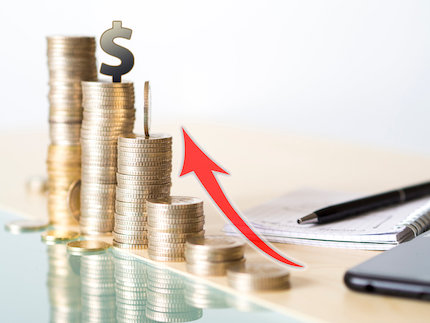
I get a lot of questions about investing to beat or mitigate inflation. I think that is the wrong way to think about your investment strategies. While inflation is a consideration, your investment choices should generate steady returns to help offset the rising cost of living.
One concept to grasp is that the effect of inflation is separate from your investment results. Inflation affects the prices you pay for goods and services. While you hope your investment returns keep you ahead of the rising cost of living, there are very few ways to invest with the specific goal of staying ahead of inflation.
Looking at it another way: you want great returns from your investments, whether inflation is high or low. It is unreasonable to think you can ramp up your returns just because the prices of your purchases are going higher. There is no magic strategy to invest for greater returns just because the rate of inflation has taken off.
Instead, aim for having returns high enough that whatever inflation does, you’ll still be good.
ALERT: You no longer need a million dollars to retire…
However, rising prices affect different companies and investments differently. You cannot tell from a glance which ones will benefit and which will suffer. For example, inflation will usually lead to higher interest rates. Higher rates are good for lenders and bad for borrowers. Since most lenders also borrow money, you need to understand how higher rates affect interest income vs. interest expense. Every company manages its balance sheet differently.
Over the last few months, I have discussed how Business Development Companies (BDCs) operate under equity and leverage rules that allow them to grow profits from rising interest rates.
One cause of recent inflation has been rising energy prices, but the period of stock price gains due to continued increases in energy is most likely behind us. I expect crude oil will stay in a range of $85 to $105 per barrel. This means what we pay for fuel and energy will remain high, but most energy sector stocks will likely not continue to appreciate.
That said, with oil stable at around $100 per barrel, oil producers and other energy companies will be hugely profitable. As an investor, you want to focus on those companies that pay dividends tied to profits. Recently I added Brigham Minerals (MNRL) to the Dividend Hunter recommendations list. Their business will allow MNRL to pay huge dividends due to the current high energy prices.That’s just one of more than 30 low-risk, high-yield dividend stocks my Dividend Hunter subscribers have access to. To see how to get the full portfolio – and a 36-month strategy for generating enough income to retire on – click here.





